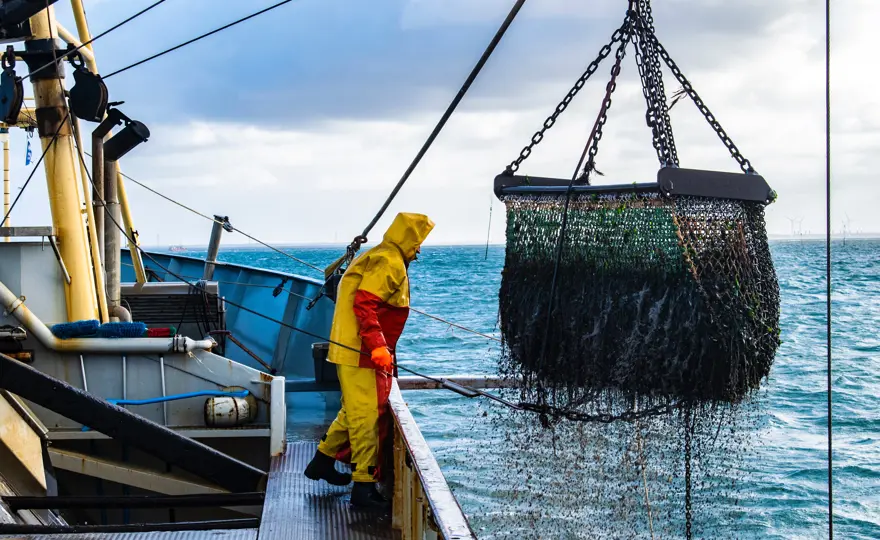ClientEarth Communications
25th September 2024


We are taking legal action against EU ministers for allowing hugely unsustainable fishing to take place, damaging fish populations beyond measure. In fact, 30% of fish stocks in the North-East Atlantic are still overfished – meaning they are being fished faster than they can breed and recover their numbers.
EU ministers representing each country in the EU Council are supposed to work together to set fishing limits that protect species from being fished too much, and in Europe they had a legal obligation to end overfishing by 2020. But in 2022, we were forced to take legal action against all member states for setting unsustainable fishing limits – a violation of EU law. .
Now we are attending a hearing in the case in Luxembourg, and we expect a ruling in the first half of 2025. Our ocean lawyer, Arthur Meeus, said: “"We want to set a precedent and prevent further mismanagement of EU fisheries. Our main aim is to ensure that EU leaders respect the targets they set themselves and are held accountable if they break the law and allow overfishing to continue, while failing to rebuild depleted fish populations.”
Overfishing not only threatens the numbers of certain species of fish, but also the whole of the ecosystems they live in. A declining species will have an impact on the rest of its food chain, as well as the biodiversity of the area and the ocean’s ability to absorb carbon.
Coastal communities who rely on fishing as a source of income are also impacted. While governments invest in ramping up industrial-level fishing vessels, it is often coastal businesses who are seeing their efforts go unrewarded.
Arthur Meeus said: “If ministers don’t follow the science and protect stocks, the price will be paid not only by fish and fishers, but by all of us – in climate and food security terms.
“This case is about holding EU fisheries ministers collectively responsible for illegally setting unsustainable fishing limits. We want to make sure they stop ignoring the law and focus on what is beneficial for us and future generations.”
Despite progress over the years, fisheries ministers have ignored scientific advice and missed legal deadlines to end overfishing.
So what should governments do to finally ensure all fishing is sustainable for 2024 and beyond?
1. Follow the science
Many stocks are in such bad shape that scientists advise limiting catches significantly, or even stopping fishing those species altogether. Ministers may think they are helping fishers’ businesses by allowing unsustainable fishing, but in the long-term, the resulting species collapse would be far worse for people who rely on fishing for income.
Allowing declining species to recover is in the long-term interest of healthy ecosystems and the fishers that depend on them.
2. Enforce the fishing rules at sea
Setting rules in line with scientific advice can only take us so far – these rules have to be respected while at sea. A few years ago, five EU countries were given a ‘red card’ by the European Commission for not properly tackling the issue of bycatch being illegally thrown back overboard – but the Commission recently dropped this legal action without reason. Governments must properly check fishing vessels to enforce the rules and the EU Commission must ensure that Member States are doing their job properly.
We’re directly challenging all EU countries at once as they are collectively responsible for encouraging and supporting overfishing. This is the first time fishing limits have been directly challenged at EU level, thanks to our success in 2021 on improving access to justice rules in the EU.
That case resulted in a landmark reform of access to justice laws in the EU – lifting the barriers that prevented NGOs and individual people from challenging the EU directly on environmental issues. The case took thirteen years but it has opened the door to a new way to bring legal challenges against environmental wrongdoings.